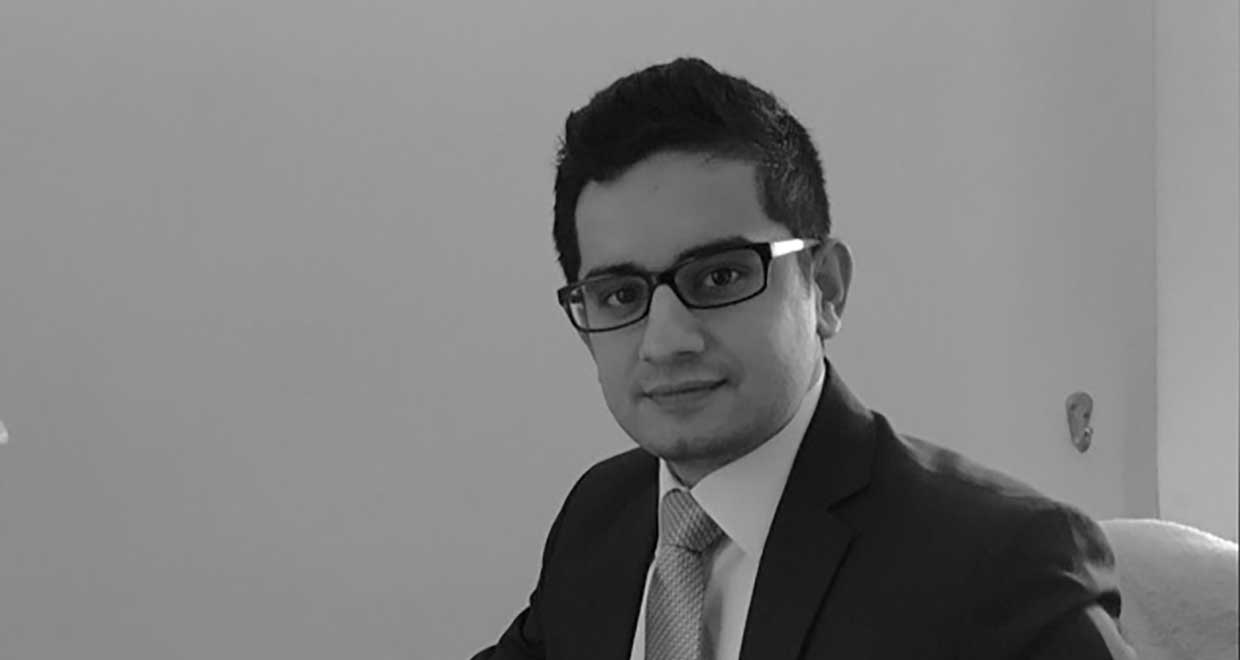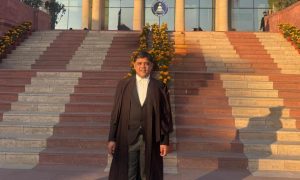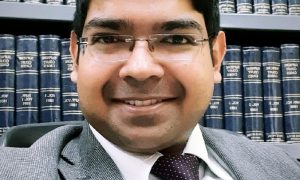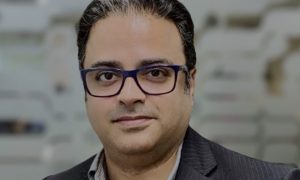Rajas Pingle graduated from ILS Law College in the year 2011. Since then he’s been visiting lecturer at (DSCI – NASSCOM) India Cyber Lab – Pune, and cyber lawyer at the District/Session Court (Pune) Bombay High Court and Adjudicating Officer (IT ACT). He is currently Partner at Netlawgic Legal Services, offering services to combat cyber crimes, computer security related incidents, corporate espionage, financial frauds, data theft, hacking , computer security related issues, among others.
In this interview we speak to him about:
- Combining technology with law
- The state of cyber law in India and what he would like to change
- Training the police force and being invited to the Rajya Sabha
How would you introduce yourself to our readers?
In a nutshell there is only one word which defines me, ‘TechnoLawgy’. I have been practicing Information Technology Law for more than six years and have handled almost every type of cybercrime case. I also conduct training sessions for various government organisations and corporates in India and abroad pertaining to Cyber Law and cyber crime. As they say, “Any sufficiently advanced technology is indistinguishable from magic”. Likewise my love for technology drives me to learn new things every day and to discover this magic.
What motivated you to take up law as your choice of career? Have you always been inclined to a career in this field?
I have been a technology nerd from the early ages of my life with no intentions whatsoever in pursuing law as a career. Since my parents were practicing lawyers I got into law school. The first two years went by but I lacked precision. It was only in the third year of law, you can say as Buddha obtained enlightenment, I obtained my illumination when I got introduced to this amazing world of Information Technology Laws (Cyber Laws). That was the turning point in my life and from that day forward, I was certain that I am going to pursue cyber law as my profession in an attempt to combine my technology knowledge with law. When career and passion comes together, work doesn’t seem like work anymore.
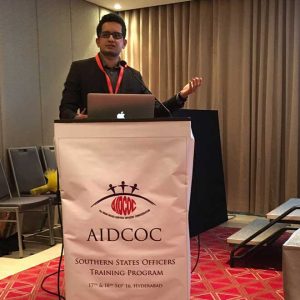
Please tell us a bit about the internships you took up during your legal education.
Candidly, I did not join any lawyer or apply for an internship in a reputed law firm as every ideal law student does. I earnestly desired to do something different so I applied for an internship in DSCI- (Data Security Council of India), Pune Cyber Lab. It is a joint initiative of NASSCOM and DSCI. The lab was mainly established to train police officers in the area of technology and information technology laws. I used to teach information technology laws to police officers. I learnt a lot from this experience, especially real time challenges faced by police officers while investigating cybercrimes. In addition to interning at DSCI-NASSCOM Pune Cyber Lab, I also used to visit court with my father to learn about the court procedure and it helped a lot. I would say that all this helped groom me as a better lawyer.
How does one acquire expertise in an inter-disciplinary field like information technology law in understanding both the legal and technical aspects that go hand in hand?
Interactions on real time cybercrime cases with police officers while teaching them information technology law proved beneficial for me as it supplemented my theoretical knowledge with practical experience. Furthermore, while pursuing law I completed following independent courses:
- Diploma in Cyber Law
- PG Diploma in Cyber Law
- Certified Cyber Crime Investigator
- Certified Ethical Hacker
- PG Diploma in IPR
These courses were both technical and legal in nature which helped me to expand my knowledge base. In the course of my journey, I realised technology is like oxygen- ubiquitous, necessary and invisible and thus it is equally important to be apprised of all latest trends in the field.
Do you think that the present legal framework in India adequately addresses the growing forms of cyber crimes?
For every lock, there is someone out there trying to pick it or break in. Information technology alone cannot provide us an absolute shield against its evil twin disinformation technology. Our only protection is law. Information Technology Act was introduced in the year 2000 and it was the first technology related legislation in India. Thereafter, in 2008 the Act was substantially amended to include various offences and definitions. The technology is progressing at a very fast pace and the modus operandi of the perpetrator is ever changing and evolving with the technology. Considering these factors, eight years is too long for amendment. If we consider the investigation perspective, many changes are required to increase the conviction rate. Moreover, as per my observation India is a country where people don’t give that much importance to their personal information. One can read in the news every day, how US and EU emphasize on their data protection laws being well established and stringent while in India we don’t even have a data protection regime in place or separate legislation on privacy. We are yet again completing the eight years cycle, let’s hope for a comprehensive amendment soon.
Share with us your experiences practicing as a cyber-lawyer before the Bombay High Court and the Adjudicating Officer under the IT Act.
Proceedings before the Adjudicating Officer are largely based on few provisions of the Information Technology Act and the principles of natural justice. As per the law, the Adjudicating Officer needs to pass a final order within six months from the date of filing. Unfortunately it is very rarely followed. In addition to delays, the Cyber Appellate Tribunal has been out of function for the last five years or so. Under the present system, one needs to approach the High Court directly for an appeal from the order passed by the Adjudicating Officer. With not much precedent in the sector, the practice is certainly demanding and engaging. As far as preparation is concerned, I have to look at the case from both angles i.e. technical and legal. Coming to the preparation of complaint, it is always better to simplify the drafting as far as possible to an understandable format instead of using all technical terms.
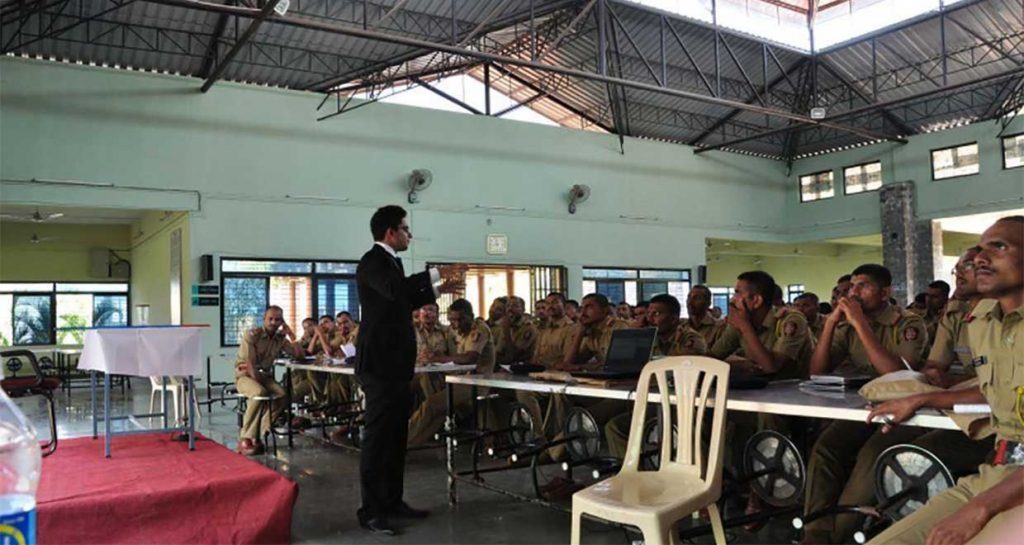
You have been invited by the Rajya Sabha to review the IT Act. Could you please tell us about it?
I was invited by the Rajya Sabha committee on petitions to give my views on the topic of ‘Cyber Pornography’. The agenda for discussion was “To put a check on Cyber Pornography among children by amending the IT Act, 2000”. The current Information Technology Act does not completely prohibit pornography and private consumption is not punishable. There was productive discussion between cyber law experts and legislative members and I was asked to submit a note on the same.
What has your experience been like while representing international clients and successfully arguing international cyber law cases?
I am very fortunate to receive international exposure at the early stages. I have successfully represented clients from Texas, New York, and Puerto Rico in various cyber law cases and also mediation. With hard work and luck on my side, I was successful in recovering respectable settlement figures for my clients against U.S. and Japan based companies in the matter of unauthorised copying of data. Additionally, I am closely working with international clients with offices in India and abroad. While handling international clients, I observed stark differences in their working style and culture. Furthermore, I got exposure to diverse laws which assist you to compare your country’s position in relation to such international issues. Overall it’s been a wonderful journey so far.
Tell us about your role as Partner at Netlawgic Legal Services LLP. What does a typical work day look like for you?
I started Netlawgic with the sole intention to provide Techno Legal solutions to the industry. Our focus and experience in both areas of Cyber Crime Investigation and Technology law, allows us to provide our clients with specialized attention and problem solving in all aspects of Technology law. That said, I start my day with reading e-news articles regarding cybercrimes across the globe, to keep the zest of learning alive and thus keep myself updated. Rest of the day is pretty simple with meetings, court and office.
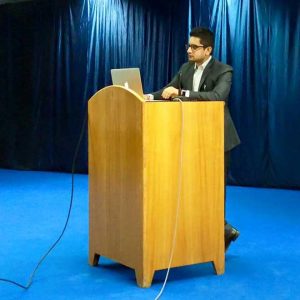
How has your experience in academia been?
(Rajas has worked with several governmental and non-governmental organizations in training officers in cyber law. He also teaches cyber law at national and international educational institutions.)
Education is the most powerful weapon which you can use to change the world. Teaching is one of the things I love and whenever I get time I allot it for teaching. While teaching I cultivate new learnings, ignite the imagination and instil creative expressions. It is a very satisfying experience, especially when I have healthy debates among students/officers on different aspects of cybercrime and cyber law. I also tend to learn a lot from these debates. It’s a completely different experience when I teach in international institutes as the exchange of knowledge is on the global platform and is a synthesis of varied legal practices and procedures. It would be difficult for me to choose between the two, I would love to keep doing both, practice information technology law and pass on that knowledge through teaching.
How do you manage your time, juggling various roles?
It is said that time and tide wait for none. Based on my experience, I can say that time management is the greatest virtue and the one who learns to manage it effectively will go many milestones in life. I am still learning to manage the same. Many a time, there are clashes among court dates, meetings and lectures on the table, especially when I travel abroad to deliver lectures. In this situation I have to prioritize and move forward accordingly.
Do you have any role models/ guides or mentors in the industry?
I learnt a lot about technology from my brother Mr. Harshad Pingle who is an engineer by profession. Other than my brother, Mr. Sandip Gadiya who is a well renowned Cyber Crime Investigator in India guided me along the way. His knowledge in cybercrime investigation helped me gain deeper insight of cybercrime investigation and for that I am eternally grateful to him. It is definitely helpful to have someone to take advice from when you are starting your career. What is important in the end is that you should keep on learning and always learn from your mistakes while moving forward.
What would be your parting message to our readers?
I want to quote Steve Jobs here “Sometimes when you innovate, you make mistakes. It is best to admit them quickly, and get on with improving your other innovations”. The same logic is applicable in law practice, you make mistakes, you learn from them and move on. Ultimately find something which you can relate to and love doing. Don’t be a part of the rat race.

